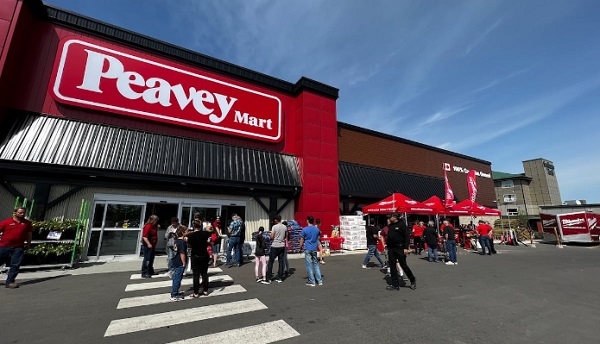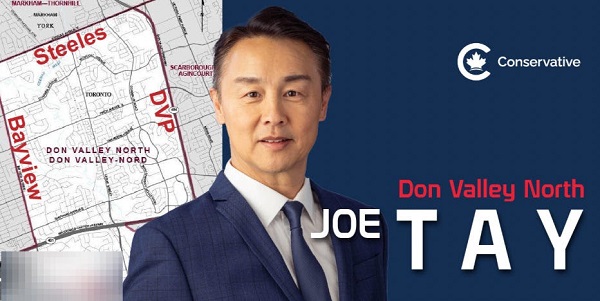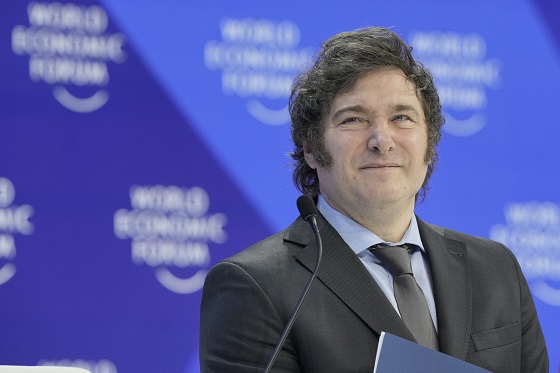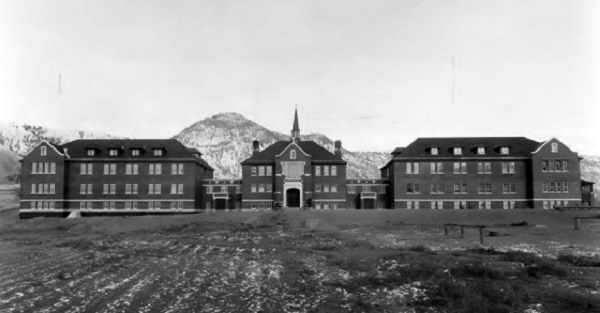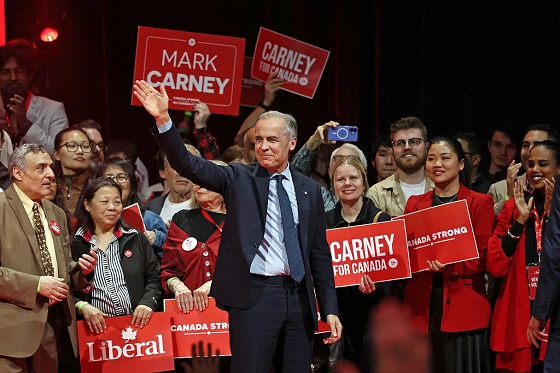From Retail Insider
(Update: Peavey Industries confirmed store closures on Monday evening in a press release)
A Legacy of Growth and Acquisitions
Peavey Mart has long been a staple for rural and small-town communities, catering to farmers, ranchers, and homeowners. Over the years, the company expanded from its Western Canada base into Ontario and other regions, particularly following its acquisition of TSC Stores in 2016. That move helped establish Peavey Mart as a household name in Ontario, diversifying its reach and bolstering its product offerings. It was also a huge expense.
In 2020, the company further broadened its scope by acquiring the Canadian master license for Ace Hardware from Lowe’s-owned RONA Inc., adding 107 Ace Hardware locations to its portfolio. This strategic acquisition was part of Peavey Industries’ efforts to compete in the hardware and home improvement sector against larger rivals like Home Depot and Canadian Tire.
However, Peavey’s relationship with Ace Hardware International came to an end in 2024, following the announcement that the partnership would cease on December 31, 2024. This decision marked a turning point for the company, forcing it to refocus on its Peavey Mart and MainStreet Hardware brands.
Financial Struggles and Early Signs of Trouble
Last week, Peavey Industries announced plans to shutter 22 underperforming Peavey Mart locations in Ontario and Nova Scotia by the end of April. At the time, the closures were presented as part of an organizational restructuring aimed at stabilizing the business and positioning it for future growth.
Doug Anderson, President and CEO of Peavey Industries, addressed the challenges in a previous statement:
“The Canadian retail environment has undergone significant disruptions in recent years, and Peavey has not been immune to these challenges. These closures are a challenging yet necessary step to stabilize and position our business for future growth.”
Despite these efforts, it now appears the company’s financial difficulties have proven insurmountable, leading to the closure of all 90+ stores across Canada.
 Liquidation signs at Peavey Mart’s Red Deer store on Saturday, January 25. Photo: Joel Graham via Facebook
Liquidation signs at Peavey Mart’s Red Deer store on Saturday, January 25. Photo: Joel Graham via Facebook
Financing and Restructuring Efforts Fall Short
In its bid to remain viable, Peavey Industries had secured a CAD $155 million financing package from Gordon Brothers. The package included a $105 million revolving credit facility, a $30 million term loan, and a $20 million consignment program. This financial injection was intended to facilitate restructuring efforts, support ongoing operations, and provide a lifeline to the struggling retailer.
Additionally, Peavey Industries collaborated with Gordon Brothers to ensure a smooth transition for affected employees and communities. However, these measures were ultimately insufficient to save the business.
Impact on Communities and Employees
The closure of Peavey Mart will leave a significant void in the Canadian retail landscape, particularly in rural and small-town markets where the chain has long been a trusted resource for agricultural and home improvement needs. The closures are also a major blow to the company’s workforce across the country.
While Peavey Industries initially expressed a commitment to supporting its employees during the transition, the abrupt announcement of a full shutdown leaves many workers and communities grappling with uncertainty.
 Image: Peavey Mart
Image: Peavey Mart
Image: Peavey Mart
A message from the Peace River Manager
In a heartfelt statement shared on Facebook, the manager of the Peace River, Alberta, Peavey Mart location expressed regret about the closures. The post sheds light on the situation and offers a glimpse into the company’s struggles over recent years. The manager wrote:
“Peace River Community,
It is with regret that I inform you of the upcoming closure of Peace River Peavey Mart, along with all other Peavey Mart locations across Canada. While many details are being kept confidential, I will keep you updated as we receive more information from the corporate team. At this time, I do not have a time frame; my best guess is 3 to 6 months.
Until an official statement is released by the company, I can only offer my personal perspective on the situation. Since 2016, Peavey Mart has expanded rapidly, acquiring over 70 stores in Eastern Canada, opening new stores, and acquiring several other businesses. However, growth was met with challenges, including a decline in business levels and rising interest rates. Unfortunately, many of the acquired stores did not prove profitable, and the company’s efforts to adjust did not have the desired results.
As a last resort, Peavey partnered with Gordon Brothers, an American investment firm, which I believe now holds a majority stake in the company and are making all decisions going forward. It appears the current plan may be to liquidate and close all locations, with potential rebranding, though which stores will remain open is still uncertain.
Please note that this is my personal opinion, and I am sharing it to help clarify the situation for our valued customers. I kindly ask that you direct any concerns toward our corporate offices, as these decisions are beyond the control of the staff here in the store.
We have worked diligently to serve you, and we appreciate your understanding during this time. It’s difficult to come to terms with the closure of so many profitable locations in Western Canada, with Peace River being one of the most notable. The Peace River location recently achieved top sales growth company-wide, consistently delivering a healthy profit despite Peavey’s constant inventory challenges.
I would like to express my sincere gratitude to all of our customers. It has been a pleasure serving the Peace River community, and I will miss it when our time here comes to an end. If you have any questions, please feel free to visit the store, and I will do my best to provide answers. At the current moment, the company has told us they are not ready to make a statement yet.”
Update: Press Release from Peavey Industries
Peavey Industries confirmed Monday evening that all Peavey Mart stores will be closing. The following is the press release that was forwarded by email to Canadian media sources:
“Red Deer, Alberta – January 27, 2025 – Peavey Industries LP (“Peavey” or “the Company”), Canada’s largest farm and ranch retail chain, announced today that it has sought and obtained an Initial Order for creditor protection under the Companies’ Creditors Arrangement Act (CCAA) from the Court of King’s Bench Alberta.
Following the recently announced closures of 22 stores in Ontario and Nova Scotia, the Company will now begin store closing sales at all remaining locations across Canada. This includes 90 Peavey Mart stores and six MainStreet Hardware locations. The closures and liquidation efforts will commence immediately.
The decision to seek creditor protection and close all stores was made after thorough evaluation of available options, in consultation with legal and financial advisors. The Canadian retail industry is experiencing unprecedented challenges, including record-low consumer confidence, inflationary pressures, rising operating costs, and ongoing supply disruptions along with a difficult regulatory environment. These factors have created significant obstacles for businesses like Peavey.
“This was a profoundly difficult decision, but one that allows us to explore the best possible alternatives for the future of the Company,” said Doug Anderson, President and CEO of Peavey Industries LP. “For nearly six decades, our customers’ loyalty, employees’ dedication, and the resilience of the communities we serve have been the cornerstone of our business. We remain focused on working with our partners and stakeholders to preserve the Peavey brand and the value it represents.”
The Company’s immediate priority is to generate liquidity through the closure process while continuing to work with funders, partners, and stakeholders to explore potential opportunities to preserve the brand.
Peavey Industries LP is committed to providing regular updates as the situation develops.”
